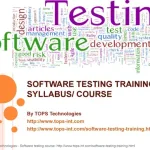The B.Ed. 4th Semester examination is crucial for students pursuing a Bachelor of Education degree. This collection of questions and answers offers a comprehensive guide to help understand the core subjects, providing clarity and preparation for exams. Each subject includes diverse question formats to support thorough learning and revision.
Pedagogy and Learning
Question: What is the importance of pedagogy in teaching?
Answer: Pedagogy helps teachers plan and deliver lessons effectively by understanding the best methods to teach diverse learners.
Question: Define the term “constructivist approach.”
Answer: A constructivist approach emphasizes learners constructing knowledge through experiences and reflection rather than passive learning.
Question: How does experiential learning enhance teaching?
Answer: Experiential learning allows students to connect theory with practice by engaging in real-world tasks, making education more meaningful.
Question: What are the basic principles of inclusive education?
Answer: Inclusive education principles include equity, diversity, accessibility, and ensuring all learners feel valued and supported in a shared classroom.
Question: Explain the significance of Bloom’s Taxonomy in education.
Answer: Bloom’s Taxonomy provides a framework for setting educational objectives, ensuring comprehensive learning from basic knowledge to critical thinking.
Question: What is differentiated instruction?
Answer: Differentiated instruction is a teaching strategy that adapts content, process, and product based on students’ varying abilities and learning styles.
Question: Describe the role of a teacher in a learner-centered classroom.
Answer: In a learner-centered classroom, the teacher acts as a facilitator, guiding students to take active roles in their learning process.
Question: What are formative assessments?
Answer: Formative assessments are ongoing evaluations used to monitor student learning and provide immediate feedback for improvement.
Question: How does technology integration impact modern classrooms?
Answer: Technology integration enhances engagement, accessibility, and personalized learning, transforming traditional teaching methods.
Question: What is scaffolding in education?
Answer: Scaffolding involves providing temporary support to students until they achieve independence in learning a new concept or skill.
Question: Define collaborative learning and its benefits.
Answer: Collaborative learning involves students working together to solve problems or complete tasks, fostering teamwork and communication skills.
Question: How does culture influence learning?
Answer: Culture shapes learners’ perspectives, values, and approaches to education, making culturally responsive teaching essential.
Question: What are problem-based learning strategies?
Answer: Problem-based learning involves presenting students with complex, real-world problems to encourage critical thinking and solution development.
Question: Discuss the characteristics of effective teaching.
Answer: Effective teaching includes clarity, adaptability, engagement, knowledge depth, and the ability to inspire and motivate students.
Question: What is peer teaching, and how does it benefit students?
Answer: Peer teaching allows students to teach each other, reinforcing their understanding and building confidence.
Question: How do classroom management strategies support learning?
Answer: Classroom management ensures a conducive learning environment by minimizing disruptions and promoting positive behaviors.
Question: What is the role of feedback in education?
Answer: Feedback helps students understand their progress, identify areas of improvement, and stay motivated to achieve their goals.
Question: Explain Howard Gardner’s theory of multiple intelligences.
Answer: Gardner’s theory identifies different types of intelligences, such as linguistic, logical, and interpersonal, emphasizing diverse learning preferences.
Question: How does reflective practice improve teaching skills?
Answer: Reflective practice involves analyzing teaching experiences to identify strengths and areas for growth, leading to better instructional methods.
Educational Psychology
Question: What is educational psychology?
Answer: Educational psychology studies how people learn and the best ways to teach, considering individual differences and cognitive processes.
Question: Explain Piaget’s stages of cognitive development.
Answer: Piaget’s theory outlines four stages: sensorimotor, preoperational, concrete operational, and formal operational, describing how thinking evolves in children.
Question: How does motivation influence learning?
Answer: Motivation drives students’ desire to learn, affecting their engagement, persistence, and academic performance.
Question: What are intrinsic and extrinsic motivation?
Answer: Intrinsic motivation arises from internal satisfaction, while extrinsic motivation is driven by external rewards like grades or praise.
Question: Define classical conditioning in learning.
Answer: Classical conditioning involves learning through associations, as demonstrated in Pavlov’s experiments with dogs.
Question: What is operant conditioning?
Answer: Operant conditioning, proposed by Skinner, involves learning through consequences, such as rewards or punishments.
Question: Describe the concept of self-efficacy.
Answer: Self-efficacy refers to an individual’s belief in their ability to succeed in specific tasks or challenges.
Question: How does emotional intelligence impact education?
Answer: Emotional intelligence enables students and teachers to manage emotions effectively, fostering better relationships and academic success.
Question: What is the role of reinforcement in learning?
Answer: Reinforcement strengthens desired behaviors, encouraging their repetition through positive rewards or negative consequences.
Question: Explain Vygotsky’s Zone of Proximal Development (ZPD).
Answer: ZPD is the gap between what a learner can do independently and what they can achieve with guidance.
Question: What is cognitive dissonance in learning?
Answer: Cognitive dissonance occurs when new information conflicts with existing beliefs, prompting individuals to reconcile the difference.
Question: How does memory affect learning processes?
Answer: Memory enables students to retain and retrieve information, playing a crucial role in knowledge acquisition and application.
Question: Define the term “metacognition.”
Answer: Metacognition is the awareness and control of one’s cognitive processes, helping students plan and assess their learning strategies.
Question: What is the significance of behaviorism in education?
Answer: Behaviorism emphasizes observable behaviors and their modification through reinforcement, shaping classroom management and teaching methods.
Question: How do learning styles influence education?
Answer: Learning styles, such as visual, auditory, and kinesthetic, highlight individual preferences, guiding teachers to tailor instruction.
Question: What are cognitive learning theories?
Answer: Cognitive learning theories focus on mental processes, such as memory, problem-solving, and perception, in understanding learning.
Question: Discuss the role of social learning in education.
Answer: Social learning emphasizes learning through observation and imitation, highlighting the influence of role models and peers.
Question: What is Maslow’s hierarchy of needs in education?
Answer: Maslow’s hierarchy outlines five levels of needs, from basic physiological needs to self-actualization, affecting students’ motivation.
Question: How does stress impact learning outcomes?
Answer: Stress hinders cognitive functions like memory and concentration, negatively affecting academic performance.
Question: Explain the role of aptitude tests in education.
Answer: Aptitude tests assess students’ abilities and potential, helping educators design appropriate learning pathways.
Question: How can teachers promote creativity in the classroom?
Answer: Teachers can encourage creativity by providing open-ended tasks, fostering curiosity, and valuing diverse ideas.
Latest Posts
- Step-by-step guide to download and apply for jee mains admit card 202
- Comprehensive 2025 government holidays and recruitment details for job seekers
- JEE Mains Admit Card 2025: Your Step-by-Step Guide to Downloading the Hall Ticket
- Everything You Need to Know About 2025 Government Holidays Recruitment
- Comprehensive Guide to rrb d group recruitment 2025 – Eligibility, Vacancies, and Application
- Detailed guide to nps trust recruitment 2025 vacancies, eligibility and apply process
- Comprehensive guide to hpcl recruitment 2025 notification, vacancies, and application process
- ignou bed admission 2025 complete recruitment guide with eligibility and process
- Comprehensive Guide to Indian Army Agniveer Recruitment 2025 Notification and Jobs
- Everything You Must Know About CBSE Board Exams 2025 Changes & New Rules






